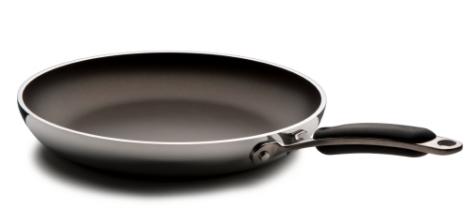Psychologists have long known that chronic stress causes psychological ailments such as depression, anxiety and anger. But "reactivity" to stress - or the overreaction to stress - gets physical and can lead to cardiovascular and infectious diseases. It makes people more susceptible to the common cold - or worse.
Until recently, studies focused on chronic stress. Now a Penn State University study says a person's inability to handle the "minor hassles of life" on a daily basis - a pending deadline, unpaid bills, road rage, a burdensome chore or a spat with a loved one or colleague - also affects health.
In 1995, the Penn State research team interviewed 435 participants each day for eight days to gauge the stress levels they experienced and their reactions to the stress. The team also did saliva tests to measure their levels of the stress hormone, cortisol. A decade later, in 2005, the team repeated the testing regimen.
Published recently in the Annals of Behavioural Medicine, the study found emotional reactivity to daily stress was "associated with an increased risk" that a participant would report a chronic physical health condition 10 years later.
"Daily stressors are less severe than chronic stressors, but they are nonetheless associated with adverse same-day physical health outcomes," the study says, noting the occurrence of fatigue, sore throat, headache and backache.
Reactivity to daily hassles also can lead to hypertension, stressful social interactions that increase the risk for metabolic syndrome that's a precursor to type 2 diabetes and even cardiovascular disease. The study says the problem isn't stress but a person's reaction to it.
'Velcro' and 'Teflon' types face daily stress. But Velcro types respond more emotionally and have problems letting the moment pass. For them, every unit increase in stressor reactivity results in a rise of 10% in the risk that participants in the study would report a chronic health condition 10 years later.
"I think our activities of daily life have evolved faster than body physiology," said David Almeida, a doctor of psychology at Penn State's Center for Healthy Aging, and the study leader.
"We are trying to determine who the Teflon people are and who the Velcro people are. Not surprisingly, people who have more financial and socioeconomic resources are more likely to be Teflon people. They also are less neurotic and have higher levels of cognitive skills."
Easygoing types also have less stress, Almeida said. People raised with warm parental relationships and higher levels of education, and those who are clever and quick to solve problems, encounter fewer problems with stress.
The study is the first to link everyday stressor reactivity to certain physical health conditions previously associated only with chronic stress, including digestive problems, pain-related problems and urinary-bladder conditions. The study calls for further investigation of how chronic and daily stressors interact on health effects.
There's already been some explanation of the pathway from stressors to disease.
Sheldon Cohen, the Carnegie Mellon University director of the Laboratory for the Study of Stress, Immunity and Disease, and his research team were the first to show how chronic stressors lead directly to disease, in this case the common cold. That model is now the standard to explain how stress can cause excess inflammation in the body that leads to other diseases as well.
The series of Carnegie Mellon studies reveal the following processes:
- When a stressful situation occurs, the body's fight-or-flight mechanism kicks in, shutting down systems not necessary to withstand the stressful situation while releasing adrenalin and other hormones to face or flee the problem.
- The body's reaction includes a release of the hormone cortisol whose functions include reducing the immune system's inflammatory response. But when stress lasts for a prolonged period, the person continues pumping out cortisol and eventually the body becomes resistant to it, with the cortisol receptors on the surface of the cells turning inward or becoming less sticky. This prevents the hormone from attaching to the cell's cortisol receptors and reducing the release of inflammatory chemicals.
- The result is the body's inability to control ongoing inflammation contributing to disease processes, including the progression of infectious diseases like colds and flu, autoimmune disease such as rheumatoid arthritis and coronary artery disease that can result in a heart attack.


















__small.png)










